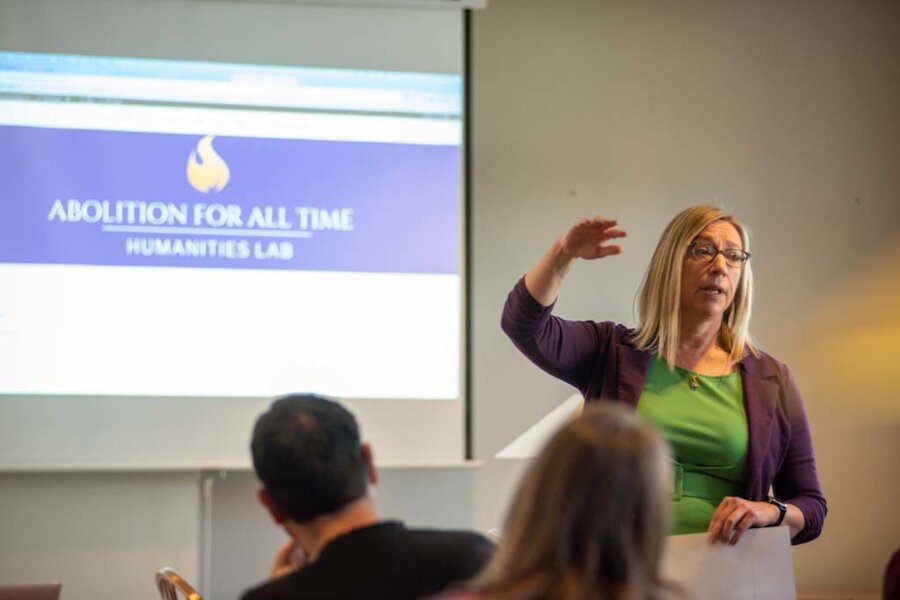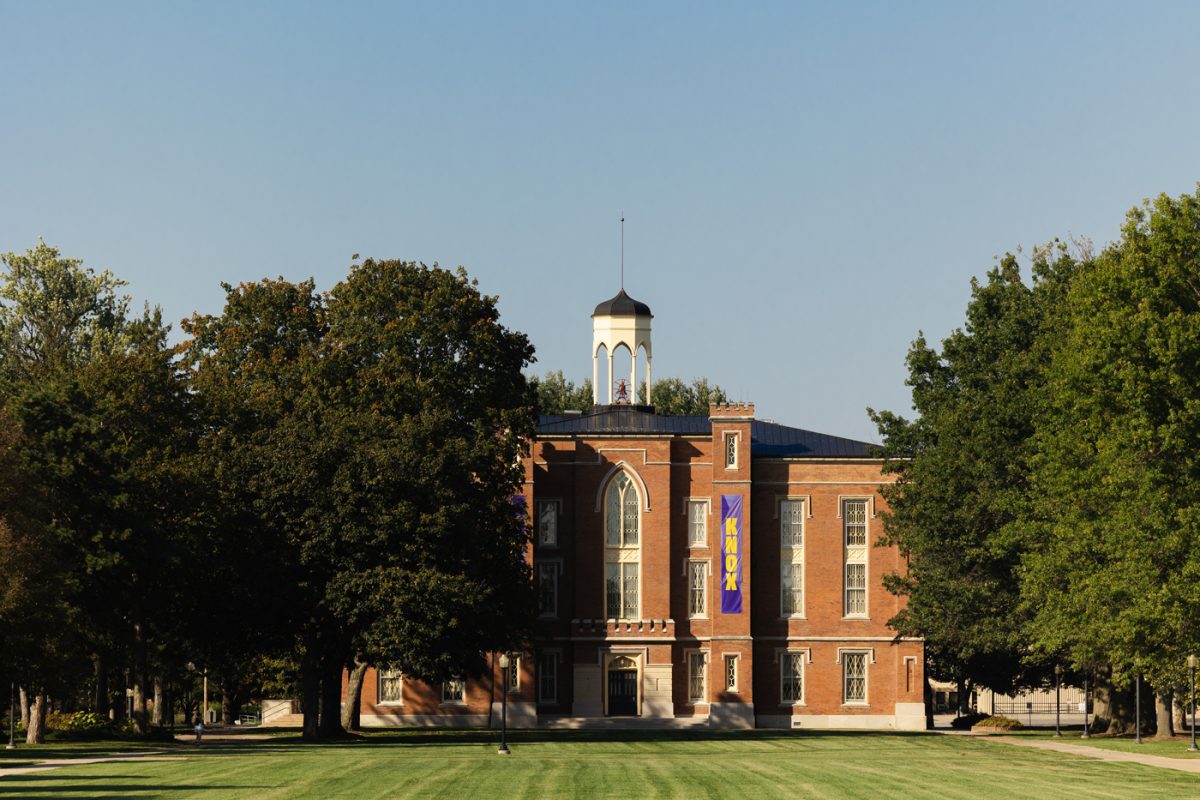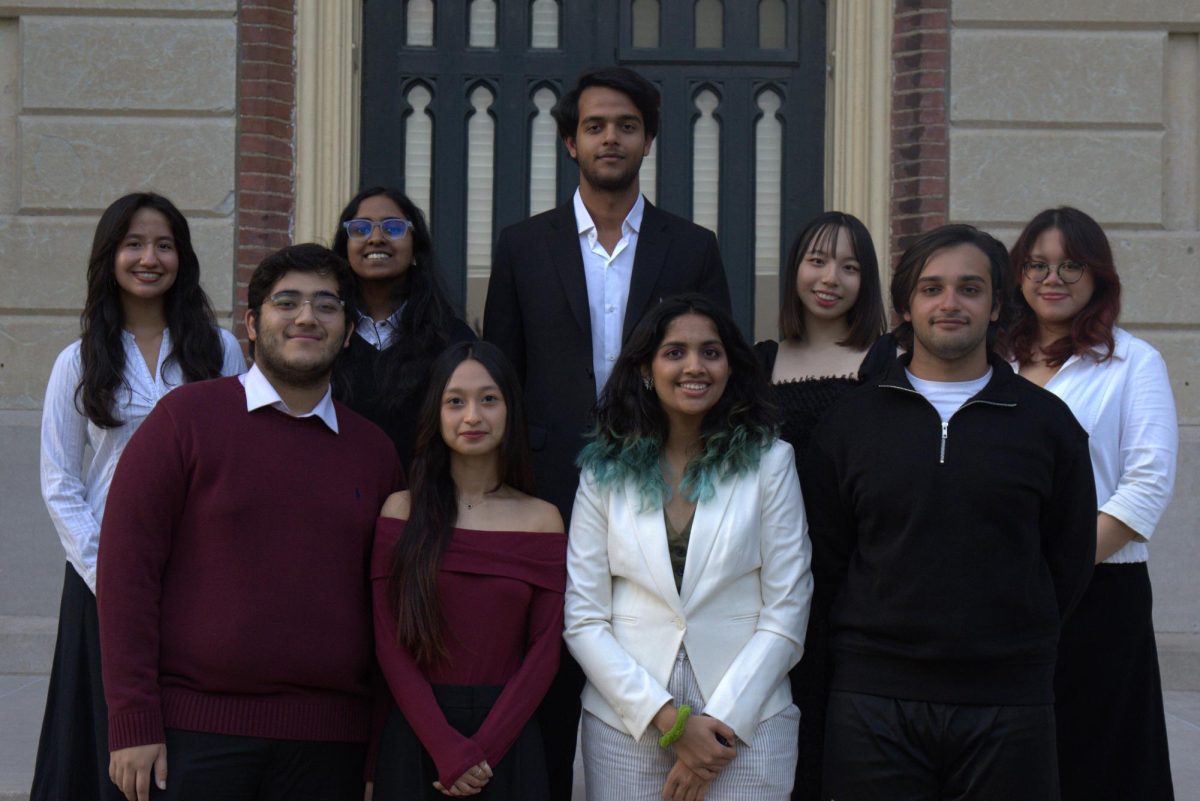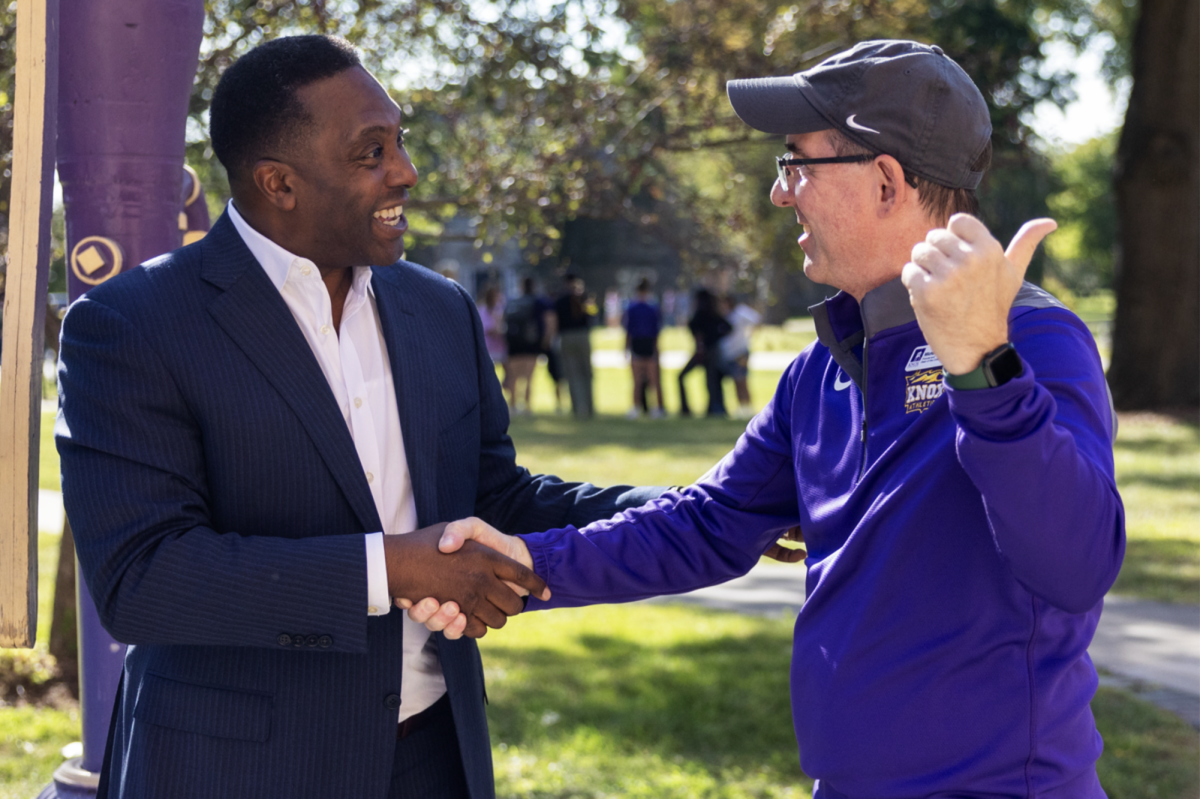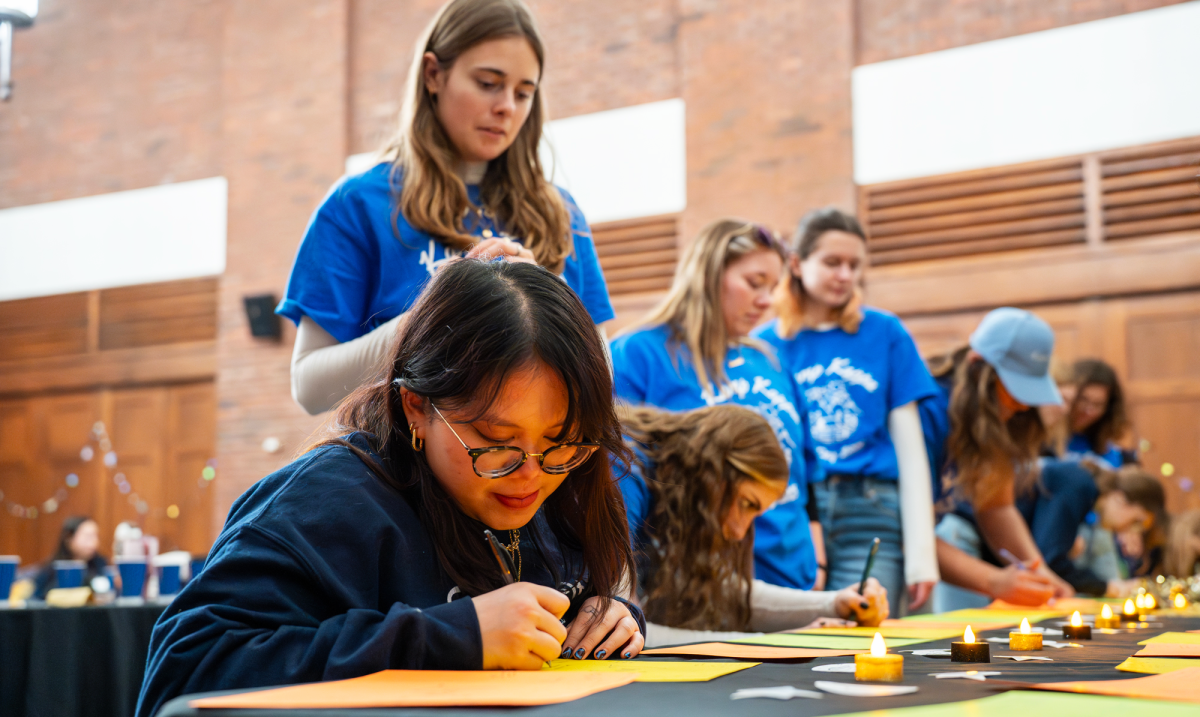Despite being a recent installation at Knox, the Abolition Lab is already playing an integral role in class curriculums across campus.
From being integrated into the core curriculum of classes like “The Art of Listening” a Freshman Preceptorial class, to various Anthropology, Health Studies, Art and Spanish courses, the list of potential resources from the lab has so far has proven to be plentiful.
The resources from the Abolition Lab are not merely restricted to access for the humanities department, but are also being incorporated for research purposes by faculty in various STEM disciplines, such as Associate Dean for Curriculum and Assessment Judith Thorn in the biology department and Associate Professor of Psychology Andrew Hertel.
Associate Dean for Faculty Affairs Dr. Danielle Steen Fatkin spoke about the purpose of the Abolition Lab.
“We wanted to help people do innovative kinds of work. Traditionally humanities is concerned with writing a paper or a magazine. Historically, that is how information was spread. However, the purpose of the abolition lab is to disseminate work on human ideas and tie it with contemporary ways of spreading information,” Fatkin said.
Second-year student and Undergraduate Lab Assistant Kyra Kellogg also spoke about how the resources in the lab are being best utilized.
“The lab is open to professors to craft projects with – every term we have a request form and we will then build a project with the professor that suits their class. We have examples of this on our website. My favorite project I’ve worked with is Dr. McCarthy Foubert’s Liberatory Social Studies project,” Kellogg said.
Recent projects conducted with the lab this term include the creation of a digital sound map in PREC 110, “The Art of Listening”, where 30-second recordings of various areas on campus were documented and compiled into a comprehensive map of the greater Knox campus area.
“We were provided with a link to the sound map and I was tasked with making a recording of the area near the bookstore. It was a great experience and was an innovative approach to using contemporary forms of media,” said first-year Akbota Serikkyzy.
Other classes that have made use of the digital humanities lab include a project on Myths and Materiality in ANSO 102, and Healthcare, Social Work and Education in Oaxaca for SPAN 221.
In alignment with the purpose of employing contemporary methods to circulate information, the Abolition Lab has an Instagram Page (abolition_lab) and a website (knoxabolitionlab.org) with information about all current and future projects conducted with the resources in the Digital Humanities Lab.

